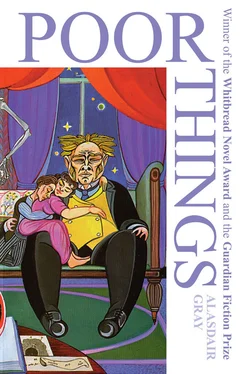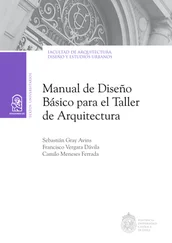Someone rapped on the bedroom door to say they had put a steaming canister of hot water on the floor outside. I had not shaved Wedder since the day we docked in Alexandria, and decided to do it now. Leaping up I swiftly washed and dressed, slipped a towel between his head and pillow and lathered his face all over. This was much easier to do with his head at the bottom of the bed. He neither spoke nor opened his eyes but I knew he was pleased, because he hates shaving himself. As I removed the bristles I reminded him that a ship bound for Glasgow by way of Lisbon and Liverpool was leaving today — that Mr. Astley was travelling on it, and had offered to book a passage for us. Still without opening his eyes Wedder said, “We are going to Paris by way of Marseilles.”
“But why, Duncan?”
“Since even a thieving trollop like you refuses to marry me only Paris remains. Take me there. Hand me over to the midinettes 20and the little green fairy then marry who you like — English, American or filthy Russian ha ha ha ha ha.”
Wedder is a lot cheerier since he decided he is not a fiend and that I probably am. I said, “But Duncan, we cannot afford to stay in Paris. I have only enough money to take us home.”
This was not true. Your money is still in the lining of my travelling-coat, God, but I felt the kindest way to get rid of Wedder (who hardly ever wants to wed me now) was by returning him to his mother. He said, “Then I must stay in Gibraltar till I have managed to cash the last Consolidated Annuities in my inheritance; and know, woman, you will never again rob or cheat me of a single penny — I shall hold on to the whole amount. Since you care about money you had better abandon me today and return to Britain with your precious Astley.”
I liked that idea but could not abandon Wedder so far from home. I know nothing about the midinettes and little green fairy, but if they are kind to him he may stop with them in Paris and I will return to Glasgow alone.
As usual he wanted tea and toast in bed. I went to the dining-room, asked for these to be sent up and breakfasted for the last time with Harry Astley. Did I tell you he is a widower who guessed long ago that I am not married? Over the ham and eggs (this is a British hotel though the staff are Spanish) I saw he was going to propose again, and prevented it by saying I would only marry a world-improver. He sighed, drummed his fingers on the tablecloth then said I should beware of men who talked about improving the world — many used such talk to entrap women of my sort.
“What sort is that?” I asked, interested. He looked away from me and said coldly, “The brave and kind sort who feel generous to the miserable of every class and country — generous also to the cold, rich and selfish.”
I nearly melted. I said, “Stand up, Harry.”
He must have been taught young to obey people because although he looked startled and the dining-room was very busy he stood up at once, straight, like a soldier. I sprang to him, tied his arms to his sides with my own and kissed him until he trembled. Then I whispered, “Good-bye Harry,” and hurried upstairs to my weary old Wedder. He and Harry are much alike, though Harry has stronger nerves. In the passage from the dining-room I looked back at the last possible moment. The foreign guests were staring at me, the British were pretending nothing odd had happened. Harry Astley, obviously British, was concentrating on his breakfast.
Candle must not be jealous. That was the only kiss Harry got from me, and no talkers will trap Bell Baxter. When I come home, God, you will tell us how to improve the world, then you and me, Candle, will marry and do it.

17. Gibraltar to Paris: Wedderburn’s Last Flight
At last, no Wedder! And my own little room in a narrow street in the heart of beautiful sane Paris! Do you remember bringing me here a long time ago? How we gaped at huge pictures in the Louvre? And ate at little tables under trees in the Tuileries Gardens? And visited Professor Charcot at the Salpêtrière, 21and how hard he tried to hypnotize me? At last I pretended he had done it, because I did not want him to feel silly in front of his huge audience of adoring students. I believe he saw I was pretending — which is why he smiled so wisely and announced that I was the sanest English woman he had ever professionally examined. Let me tell you how I got back here.
In Gibraltar Wedder made me wait outside the bank while he collected his money. He emerged with the careless swagger I so admired, though I now knew there was not much underneath. On the boat to Marseilles he ordered bottles of wine with our meals. This was new. I drank none because one sip of it makes me giddy, but he said a meal without wine was no meal at all, and pointed out that the French were all drinking it. This ship, unlike the Cut-use-off, was mainly for passengers. In the afternoons and evenings Wedder played cards with men in a corner of the main saloon, and kept at it long after I went to bed. The night before we docked in Marseilles he came back to the cabin whistling and chirping, “My hinny my hen my humming-bird my pretty partridge my Scots blue Bell, you were right in what you once said! Games of skill not games of chance are this man’s mètier.”
He counted his winnings then got into bed the right way round for the first time in weeks. I was starting to enjoy what he called “our second honeymoon” when he suddenly fell asleep. Not me. I knew what was going to happen and that I could not stop it.
Instead of going straight to Paris from Marseilles we put up in a hotel recommended by one of the card players on the boat. The same friend introduced him to a café or club or card-school where he played every afternoon and evening while I waited in the hotel drinking cup after cup of chocolate and brooding over Malthus’ On Population. It took Wedder five days to lose all he had. He behaved better over it than I expected, coming to our room in the afternoon and saying, “Here I am at your mercy again, Bell. I hope you have enough to pay the hotel — I’m totally cleaned out. But you prefer me this way.”
I had no intention of using your money until the last possible moment, God. I packed some essentials into a handbag, smartened myself up, smartened up Wedder, then took him for a stroll to a railway station where we caught an overnight train to Paris. While waiting for it he tried to break away once or twice, begging to return to the hotel to collect a dressing-case with silver-mounted brushes which had belonged to his father. I said, “No, Wedder, you booked that room for us. Be glad the hotel is getting something valuable in return.”
I was so relieved to get clean away from Marseilles that I slept sound though sitting upright on the wooden bench of a French third-class carriage.
On reaching Paris I saw Wedder had not slept a wink and was on the verge of collapsing. I dragged him into the crooked streets on the less posh side of the river where hotels were likely to be cheap, but they were not yet open. In a cobbled space where three narrow lanes met I plonked us both down at a café table and said, “Rest here Wedder. I will go to the station where trains leave for Calais and buy tickets. We could be in Glasgow three days from now.”
“Impossible — it would mean social ruin. We are not man and wife.”
“Then dear Duncan let us return to Glasgow separately.”
“Fiend-woman! Demon! Have I not proved that I love and need you? That parting with you would be tearing my heart out by the roots?” et cetera.
Читать дальше













